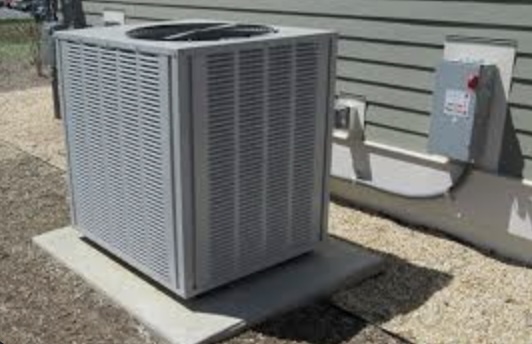8 Tips for Extending the Life of Your HVAC System

As a homeowner, one of the most important investments you can make is in your HVAC system. Your heating, ventilation, and air conditioning system is responsible for maintaining a comfortable temperature inside your home all year round, and it’s essential that you take care of it to ensure it lasts as long as possible.
The high temperatures of summer and the low temperatures of winter that put your HVAC system to the test can take a toll on its efficiency, but there are ways to keep it running at its optimal level, such as an AC maintenance plan from American Home Water and Air (AHWA).
We spoke with some of the professionals at AHWA and here are some of their best tips for extending the life of your HVAC system:
1. Schedule Regular Maintenance
Regular maintenance is vital to the health and lifespan of your HVAC system. Timely inspection and maintenance will keep your system running like clockwork and extend its lifespan. Professional HVAC technicians conduct inspections, perform cleaning of various parts and components, and perform repairs as needed, sometimes on the spot.
It’s a good idea to schedule maintenance at least once a year, ideally in the spring or fall, before you start using your system heavily. A good HVAC maintenance plan can save you money on regular services by offering a discounted rate and preventing unnecessary repairs.
2. Keep the Outdoor Unit Clean
If you have a central air conditioning system, you likely have an outdoor unit that houses the compressor and other components. It’s important to keep this unit clean and clear of debris, as this can impact its efficiency and lifespan.
Regularly check the unit for leaves, grass clippings, and other debris, and remove any build-up using a soft brush or hose. Ensure no objects are blocking its airflow and that there is no damage to any of the components.
3. Install a Programmable Thermostat
A programmable thermostat is a small but powerful tool that can help extend the life of your HVAC system. By allowing you to set different temperatures for various times of day, you can reduce the burden on your system and avoid unnecessary wear and tear.
For example, you can set the temperature higher when you are away from home during daytime hours and lower at night when you’re sleeping. This can save energy and money while also helping your system last longer.
While you can accomplish this manually, there is a good chance that you may forget and leave it on a higher setting too long, causing it to run more than it should and creating an uncomfortable temperature in your home.
4. Seal Air Leaks
Air leaks around doors, windows, and other openings let air escape and enter your home, affecting the temperature. This can cause your HVAC system to suffer increased demand, putting extra strain on the system and reducing its lifespan.
To avoid this, it’s important to seal any air leaks in your home. This can be done using caulk or weatherstripping and can help keep your home more comfortable while also reducing your energy bills. You might also use heavy drapes or draft extruders to block air from exiting and entering if unable to take more permanent measures.
5. Use Ceiling Fans
Ceiling fans alone will not cool your home, but they are an excellent way to keep the air moving around. By circulating the airflow in your home, ceiling fans help keep the temperature more comfortable and reduce how hard your HVAC system has to work. This can help reduce wear and tear on your system, preventing unnecessary repairs and increasing the lifespan of your equipment.
6. Change the Air Filter Regularly
The air filter in your HVAC system plays a critical role in keeping the air inside your home clean and healthy. It filters out dust, dirt, and other particles that can cause health problems or damage your system.
Over time, the filter will become clogged with debris, reducing its effectiveness, and putting extra strain on your HVAC system. To avoid this, it’s essential to change your air filter regularly.
Most experts recommend changing the filter every 1-3 months, depending on your system and your home’s air quality. Homes that include pets, experience heavy use such as during the summer or winter months or have family members sensitive to indoor air pollution will be best served with the more frequent monthly changes.
7. Consider Upgrading Your System
At some point, your system will need to be replaced. If your HVAC system is old or inefficient, it may be worth considering an upgrade before it leaves you stranded. Newer systems are generally more efficient and reliable than older ones and can help save you money in the long run.
If you’re not sure whether an upgrade is worth it, connect with an experienced HVAC technician for advice on how to meet your specific needs and budget.
8. Don’t Delay Repairs
Address any problems that arise with your HVAC system immediately. Delayed repairs can result in the more costly operation of the system and lead to additional damage that can require expensive repairs or, in some cases, a full replacement. No one likes to have to call for an unexpected service, but failing to do so can often do more harm and lead to a reduction in the lifespan of your HVAC equipment.
Taking care of your HVAC system is essential for keeping your home comfortable and your indoor air healthy. Additionally, a well-maintained system will function more efficiently, saving you money on your energy bills.
Takeaway
By following these tips, you can extend the life of your system and avoid costly repairs or replacements. If you have any questions or concerns about your HVAC system, don’t hesitate to contact a professional for help. They can provide expert advice and ensure your system is running smoothly for years to come.




























